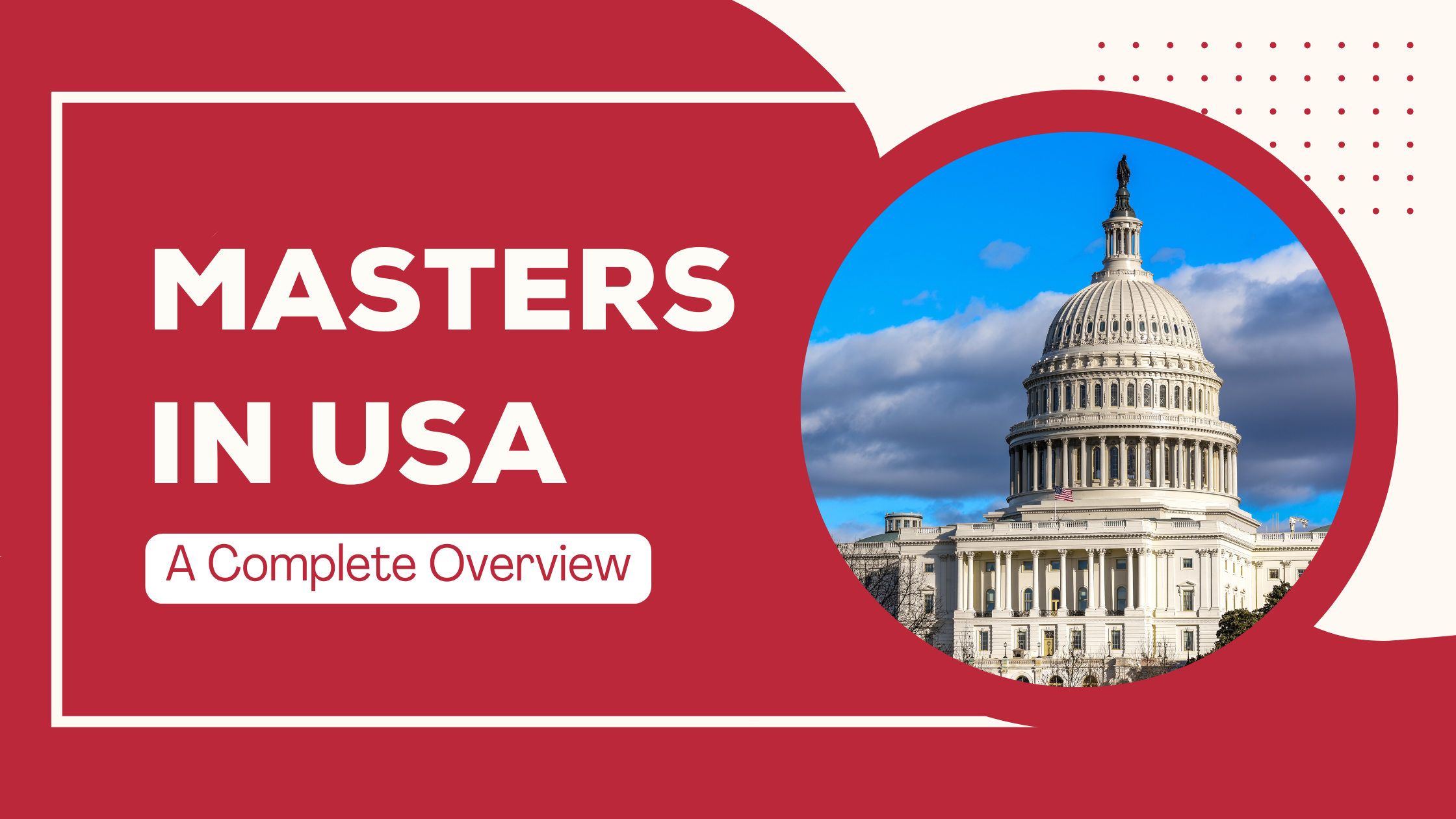Masters in the USA: A Complete Overview
Top Universities for MS in USA
The USA is renowned for its high-quality education and state-of-the-art research facilities, making it a prime destination for MS aspirants. These universities provide specialized programs, world-class faculty, and unparalleled opportunities for innovation:
- Massachusetts Institute of Technology (MIT): Known for cutting-edge research in technology and engineering.
- Stanford University: Offers diverse MS programs with strong ties to Silicon Valley.
- University of California, Berkeley (UC Berkeley): A top choice for research-intensive programs.
- California Institute of Technology (Caltech): Excels in science and engineering disciplines.
- University of Illinois Urbana-Champaign: Known for its focus on innovation and research.
| University | QS Rank | Avg Tuition (USD) |
|---|---|---|
| MIT | 1 | $53,790/year |
| Stanford | 3 | $56,169/year |
| UC Berkeley | 10 | $45,942/year |
| Caltech | 6 | $54,570/year |
| Illinois Urbana-Champaign | 48 | $33,528/year |
Top Universities for MBA in USA
An MBA from a prestigious U.S. institution can open doors to global leadership roles. These programs emphasize practical business skills, entrepreneurship, and strategic thinking:
- Harvard Business School: Pioneering case-study approach and vast alumni network.
- Stanford Graduate School of Business: Focuses on leadership and innovation.
- University of Pennsylvania (Wharton): Known for finance and analytics expertise.
- Northwestern University (Kellogg): Strengths in marketing and strategy.
- Columbia Business School: Offers unmatched networking in New York City.
| University | QS Rank | Avg Tuition (USD) |
| Harvard | 5 | $73,440/year |
| Stanford | 1 | $76,950/year |
| Wharton | 2 | $82,800/year |
| Kellogg | 6 | $74,871/year |
| Columbia | 8 | $80,938/year |
High-Ranked Universities in USA Accepting 3-year Bachelor’s Degrees
Many prestigious U.S. universities recognize the value of three-year bachelor’s degrees, particularly for students from countries like India, the UK, and Australia. Such flexibility broadens opportunities for international candidates:
- University of Pennsylvania: Accepts candidates with strong academic records and relevant experience.
- Columbia University: Offers graduate programs accommodating diverse educational backgrounds.
- New York University (NYU): Provides a supportive environment for international students.
- University of Southern California (USC): Recognized for innovation-driven education.
- Purdue University: Renowned for its engineering and technology programs.
Study Duration for a Masters in USA
Master’s programs in the USA are designed to offer flexibility based on your academic and professional goals:
- STEM programs: Typically 24-36 months, with optional STEM OPT extension post-graduation.
- Non-STEM programs: Usually 12-24 months, depending on the discipline.
Cost of Studying Masters in USA
The financial investment for studying in the USA includes tuition fees, living expenses, and other costs. Here’s an approximate breakdown:
- Tuition Fees: Range from $20,000 to $70,000 per year, depending on the university and program.
- Living Expenses: Estimated at $15,000 to $25,000 annually, including accommodation, food, and transportation.
- Miscellaneous Costs: Books, supplies, and health insurance might add an extra $3,000 to $5,000 annually.
Financial Aid Options
International students can access a variety of financial aid options to make their education affordable:
- Teaching/Research Assistantships: Many universities offer stipends to students assisting in research or teaching.
- Merit-Based Scholarships: Awarded based on academic or professional achievements.
- Need-Based Grants: Designed for students demonstrating financial need.
- Student Loans: Available through banks and financial institutions, often with competitive interest rates.
- Work-Study Programs: On-campus jobs to supplement living costs.
Eligibility Criteria for Masters in USA
The general eligibility requirements for applying to Master’s programs in the USA include:
- Educational Qualification: A bachelor’s degree of 3-4 years.
- Standardized Test Scores: GRE/GMAT (optional for some programs).
- English Proficiency: TOEFL/IELTS scores for non-native speakers.
- Application Materials: Statement of Purpose (SOP), Letters of Recommendation (LORs), Resume/CV.
Exemptions for Masters in USA
Universities often waive certain requirements to ease the admission process for qualified applicants:
- GRE/GMAT Waivers: Applicable to candidates with strong academic or professional backgrounds.
- English Proficiency Waivers: For applicants from countries where English is the medium of instruction.
Conclusion
Pursuing a Master’s degree in the USA is an investment in your future, offering global career opportunities, academic excellence, and cultural enrichment. With top-ranked universities, cutting-edge research facilities, and a wealth of resources for international students, the USA continues to be a preferred destination for higher education.
At Edwest Global, we understand the complexities involved in planning your study abroad journey. Our dedicated team provides personalized guidance in selecting the right university, securing financial aid, and navigating visa processes. Let us help you turn your academic aspirations into reality and make your dream of studying in the USA a seamless experience.
FAQs
Q: Can I work during my studies?
A: Yes, up to 20 hours per week on-campus and full-time during breaks.
Q: Are there scholarships for international students?
A: Many universities offer merit- and need-based scholarships for eligible candidates.
Q: What is the application deadline for most universities?
A: Application deadlines typically fall between December and February but vary by institution.
Q: Can I stay in the USA after completing my degree?
A: Yes, students on STEM OPT can remain for up to three years, while others get a one-year OPT period.
Q: Is health insurance mandatory for international students?
A: Yes, most universities require health insurance to ensure comprehensive medical coverage.
Q: What are the common job opportunities after a Master’s in the USA?
A: Graduates secure roles in technology, finance, healthcare, consulting, and academia, depending on their field of study.







